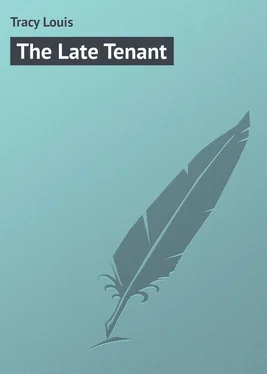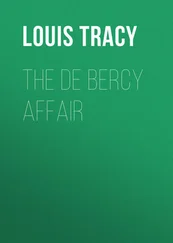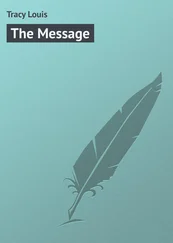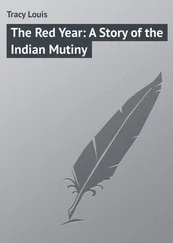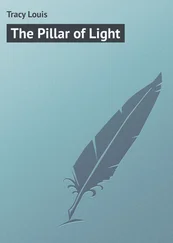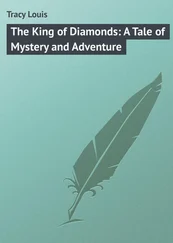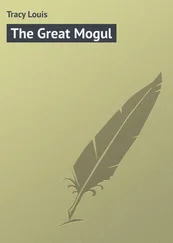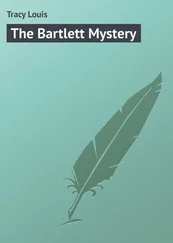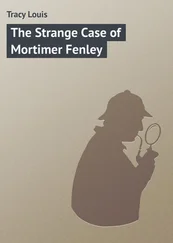Louis Tracy - The Late Tenant
Здесь есть возможность читать онлайн «Louis Tracy - The Late Tenant» — ознакомительный отрывок электронной книги совершенно бесплатно, а после прочтения отрывка купить полную версию. В некоторых случаях можно слушать аудио, скачать через торрент в формате fb2 и присутствует краткое содержание. Жанр: foreign_prose, на английском языке. Описание произведения, (предисловие) а так же отзывы посетителей доступны на портале библиотеки ЛибКат.
- Название:The Late Tenant
- Автор:
- Жанр:
- Год:неизвестен
- ISBN:нет данных
- Рейтинг книги:5 / 5. Голосов: 1
-
Избранное:Добавить в избранное
- Отзывы:
-
Ваша оценка:
- 100
- 1
- 2
- 3
- 4
- 5
The Late Tenant: краткое содержание, описание и аннотация
Предлагаем к чтению аннотацию, описание, краткое содержание или предисловие (зависит от того, что написал сам автор книги «The Late Tenant»). Если вы не нашли необходимую информацию о книге — напишите в комментариях, мы постараемся отыскать её.
The Late Tenant — читать онлайн ознакомительный отрывок
Ниже представлен текст книги, разбитый по страницам. Система сохранения места последней прочитанной страницы, позволяет с удобством читать онлайн бесплатно книгу «The Late Tenant», без необходимости каждый раз заново искать на чём Вы остановились. Поставьте закладку, и сможете в любой момент перейти на страницу, на которой закончили чтение.
Интервал:
Закладка:
“So snug,” said David, “that I feel stifled. It beats me how people can get so accustomed to this sort of prison as not even to remember any longer that they are in prison. No air, no room to stretch, coal-dust in your very soul, and even at night in your bed!”
“Dash it all, don’t say it.”
“Say what?”
“Were you about to refer to any fresh experiences?”
“Of the ghost? Not a bit of it!” said David. “I have seen, heard, or smelled nothing more of anything.”
“Good, good!” went on Dibbin, softly. “Keep on like that, and we shall pull through yet. I find you are well stocked with violets, meantime.”
David laughed a little uneasily, and said “Yes” – no more. Whiffs of violets in a lonely flat, for which one can’t account, are not altogether pleasant things. David had therefore surrounded himself with violets, in order, when he was greeted with a scent of violets, to be able to say to himself that the scent came from those which he had bought. He had not admitted even to himself what his motive was in buying; nor would he admit it to Mr. Dibbin. There, however, the violets were in several pots, and their fragrance at once drew the notice of a visitor, for the London florist has an art to heighten dull nature in violets and much else.
“Have a seat, Mr. Dibbin,” said David, “and let us talk.”
“I am afraid I must be off,” began the other.
“Well, have a B. and S. any way. I only want to hear from you whatever you can tell me of Mrs. and Miss Violet Mordaunt.”
“What? You have discovered their names?” cried Dibbin with a start.
“I have.”
“Mr. Harcourt, you are a remarkable man,” said the agent with quiet certainty.
“Oh, not too remarkable. But since I do know something, you might let yourself loose as to the rest, as I am interested. You have seen the mother, I know. Have you seen the daughter, too?”
“Several times.”
“Pretty girl, eh? Or what do you think?”
“Well, I am getting an old man now,” said Dibbin; “but I have been young, and I think I can remember how I should have felt at twenty-five in the presence of such a being.”
“Pretty, you think her, eh?”
“Rather!”
“Prettier than Gwendoline? Prettier than her sister?”
“Well, I don’t know so much about that neither – different type – graver, softer in the eye and hair, taller, darker, not so young; but that poor dead girl was something to make the mouth water, too, sir – such a cut diamond! to see her in her full war-paint, turned out like a daisy! – in short, lovely beings, both of ’em, both of ’em.”
“Fairly well fixed, the mother?”
“You mean financially? Oh, I think so. Got a fine place down in Warwickshire, I know – not far from Kenilworth. Good old family, and that sort of thing.”
“But how on earth this man Strauss, more or less an adventurer, I take it, could have got hold of such a girl, to the extent of drawing her from her happy home, and sending her on the stage. He didn’t marry her, Dibbin? He didn’t marry her?”
“How can I say?” asked Dibbin, blinking. “We can all make a shrewd guess; but one can’t be absolutely certain, though the fact of her suicide would seem to be a sort of proof.”
“What do the mother and Miss Mordaunt think of it? Do they assume that she was married? Or do they know enough of the world to guess that she was not? I suppose you don’t know.”
“They know what the world thinks, I’m afraid,” answered Dibbin. “I am sure of that much. Yes, they know, they know. I have been with Mrs. Mordaunt a good many times, for one reason or another. I can tell how she feels, and I’m afraid that she not only guesses what the world thinks, but agrees with the world’s view. On the other hand, I have reason to think that Miss Mordaunt has an obstinate faith in her sister, and neither believes that she died unmarried, nor even that she committed suicide. Well, well, you can’t expect much clear reasoning from a poor sister with a head half turned with grief.”
Dibbin tossed off his brandy, while David paced the room, his hands behind him, with a clouded brow.
“Have they no protector, these women?” he asked. “Isn’t Miss Mordaunt engaged?”
“I fancy not,” said the agent. “In fact, I think I can say undoubtedly not. She was not engaged before the death of her sister, I am certain; and this disaster of her sister appears to have inspired the poor girl with such a detestation of the whole male sex – ”
“Do you happen to know who a certain Mr. Van Hupfeldt is?” asked David.
“Van Hupfeldt, Van Hupfeldt? No, never heard of him. What of him?”
“He seems to be a pretty close friend of the Mordaunts, if I am right.”
“He may be a close friend, and yet a new one,” said Dibbin, “as sometimes happens. Never heard of him, although I thought that I knew the names of most of Mrs. Mordaunt’s connections, either through herself or her solicitors.”
“But to go back to this Strauss,” said David. “Do you mean to say that neither the mother nor Miss Mordaunt ever once saw him?”
“Not once that they know of.”
“Then, how did he get hold of Gwendoline?”
“That’s the question. It is suspected that he met her in the hunting-field, persuaded her to meet him secretly, and finally won her to fly from home. To me this is quite credible; for I’ve seen Johann Strauss twice, and each time have been struck with the thought how fascinating this man must be in the eyes of a young woman!”
“What was he like, then, this Mr. Johann Strauss of the flourishy signature?”
“A most handsome young man,” said Mr. Dibbin, impressively; “hard to describe exactly. Came from the States, I think, or had lived there – had just a touch of the talk, perhaps – of Dutch extraction, I take it. Handsome fellow, handsome fellow; the kind of man girls throw themselves over precipices after: teeth flashing between the wings of his black mustache – tall, thin man, always most elegantly dressed – dark skin – sallow – ”
At that word “sallow,” David started, the description of Johann Strauss had so strangely reminded him of Van Hupfeldt! But the thought that the cause of the one sister’s undoing should be friendly with the other sister, paying his court to her over the grave of the ill-fated dead, was too wild to find for itself a place all at once in the mind.
David frowned down the notion of such a horror. He told himself that it was dark when he had seen Van Hupfeldt, that there were many tall men with white teeth and black mustaches, and sallow, dark skins. If he had felt some sort of antipathy to Van Hupfeldt at first sight, this was no proof of evil in Van Hupfeldt’s nature, but a proof only, perhaps, of David’s capabilities of being jealous of one more favored than himself by nature as he fancied – and by Violet Mordaunt, which was the notion that rankled.
And yet he tingled. Dibbin had said that this Van Hupfeldt might be “a new friend – one who had become a friend since the death of Gwendoline.”
David paced the room with slow steps, and while Dibbin talked on of one or another of the people who had known Gwendoline Mordaunt in the flesh, vowed to himself that he would take this matter on his shoulders and see it through.
“Speaking of the Miss L’Estrange who was in the flat before me,” said he; “how long did she stay in it?”
“Three months, nearly,” answered Dibbin, “and then all of a sudden she wouldn’t stay another day. And I had no means of forcing her to do so either.”
“What? Did the ghost suddenly get worse?”
“I couldn’t quite tell you what happened. Miss Ermyn L’Estrange isn’t a lady altogether easy to understand when in an excited condition. Suffice it to say, she wouldn’t stay another hour, and went off with a noise like a catherine-wheel.”
Читать дальшеИнтервал:
Закладка:
Похожие книги на «The Late Tenant»
Представляем Вашему вниманию похожие книги на «The Late Tenant» списком для выбора. Мы отобрали схожую по названию и смыслу литературу в надежде предоставить читателям больше вариантов отыскать новые, интересные, ещё непрочитанные произведения.
Обсуждение, отзывы о книге «The Late Tenant» и просто собственные мнения читателей. Оставьте ваши комментарии, напишите, что Вы думаете о произведении, его смысле или главных героях. Укажите что конкретно понравилось, а что нет, и почему Вы так считаете.
